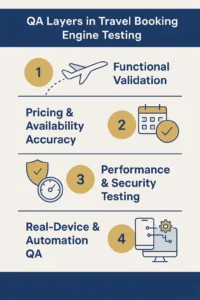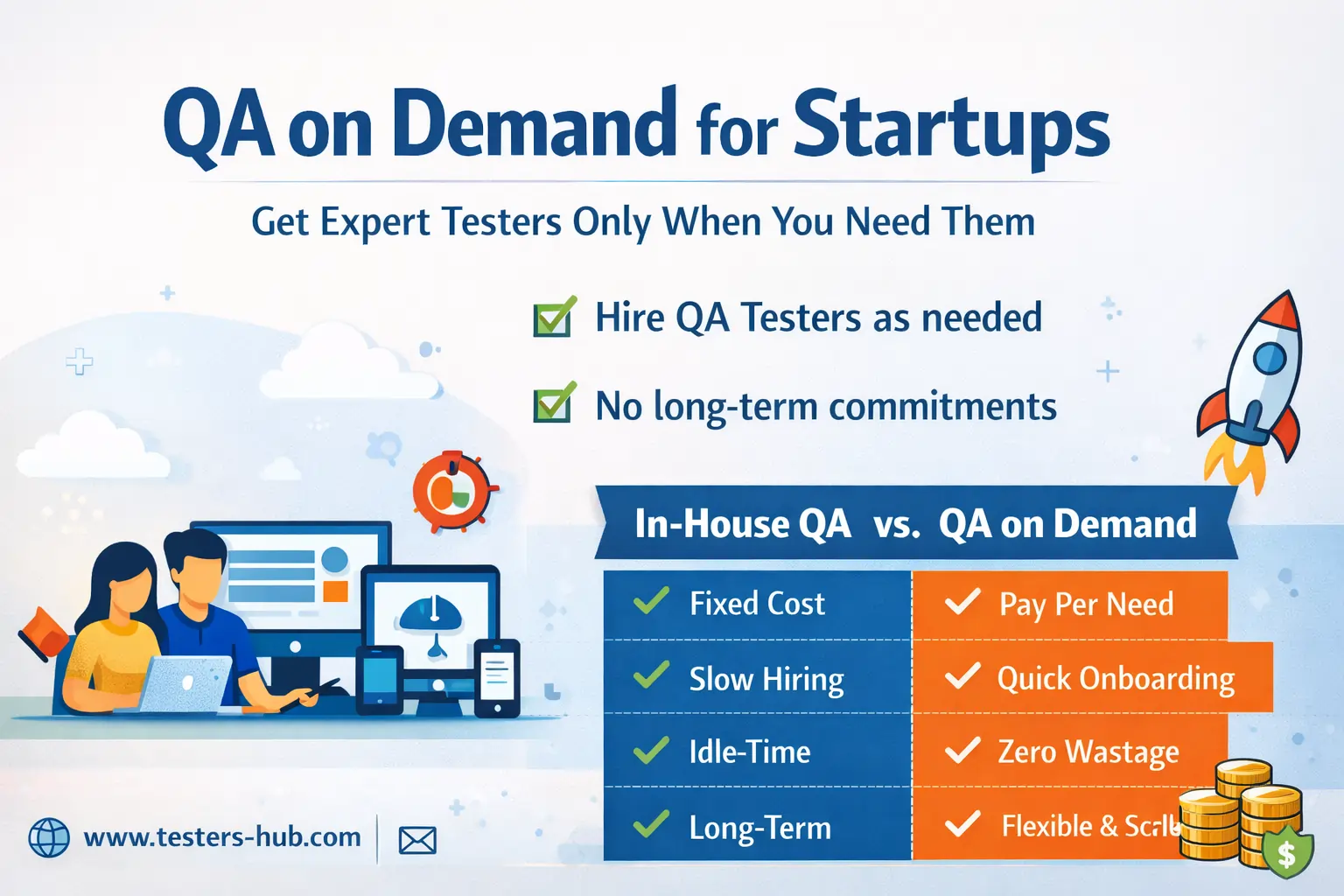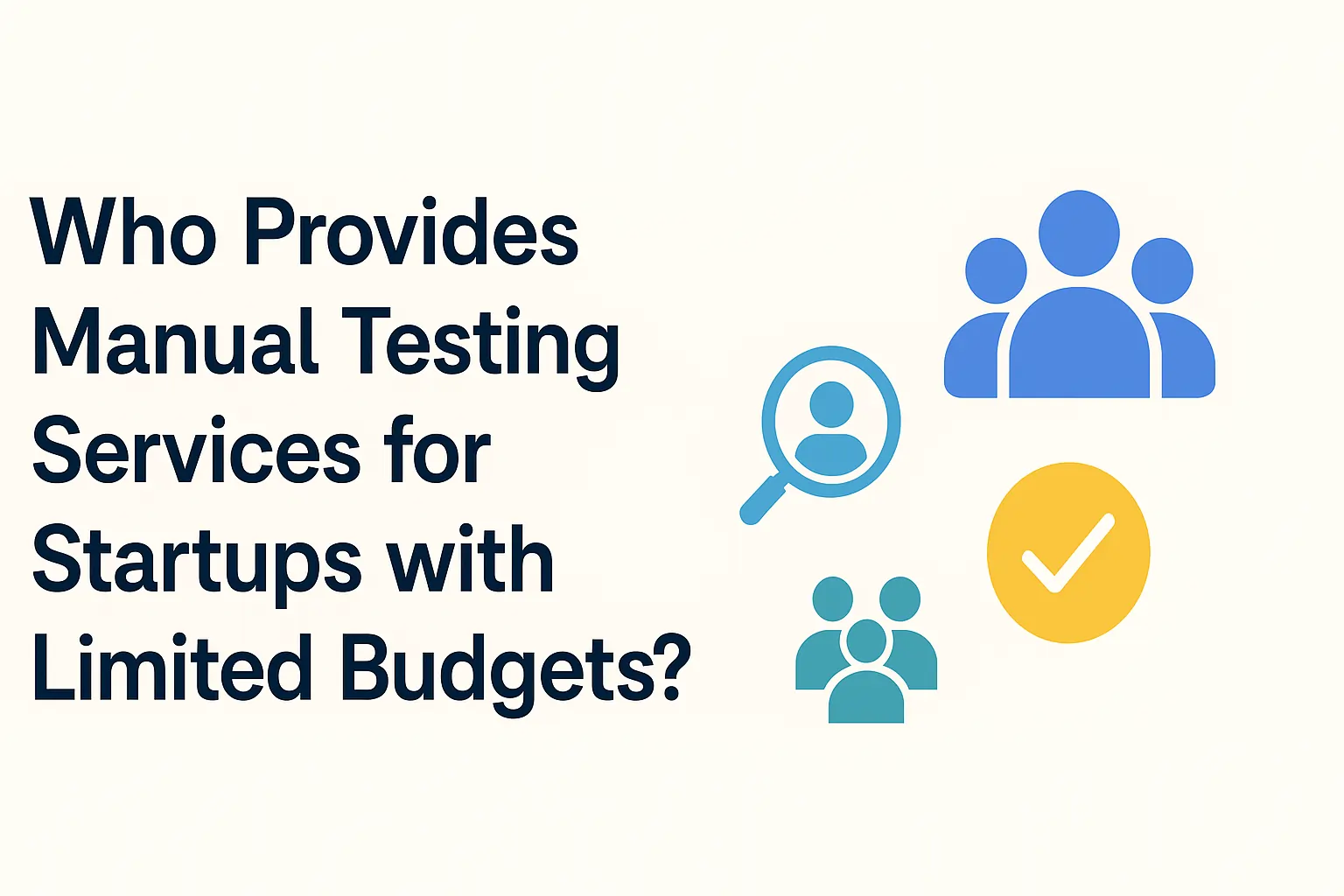Booking Engine QA Services: Guaranteeing Real-Time Accuracy for Travel and Hospitality Websites
Introduction: Why Booking Engine QA Services Are Critical for Modern Travel Platforms
In today’s fast-paced travel market, customers expect booking experiences to be quick, accurate, and seamless. They don’t want to refresh pages, re-enter data, or question whether a room or flight is still available. Yet behind every flawless booking journey lies an intricate system working in real time to sync prices, process payments, and confirm availability.
Even the smallest error — a delayed API update or mismatched rate — can break that experience. It can result in failed transactions, duplicate bookings, or frustrated users abandoning your site altogether. According to recent travel industry reports, over 70% of potential bookings are lost due to technical glitches or poor user experience.
That’s where booking engine QA services make the difference. By testing every aspect of your travel platform — from pricing accuracy to device compatibility — QA ensures users always experience reliability, speed, and trust at every step.
👉 Avoid last-minute booking issues during peak travel seasons.
What Makes a Travel Booking Engine Complex to Test?
A booking engine looks simple to users — a few fields, a calendar, and a “Proceed to Payment” button. But behind the interface lies a multi-layered architecture that constantly exchanges live data.
Here’s what a typical booking engine includes:
- Front-End Interface: Where users browse, filter, and book flights or hotels.
- Back-End APIs: Syncing with multiple travel suppliers and hotel chains.
- Payment Systems: Managing real-time currency conversions and taxes.
- Databases: Tracking inventory, offers, and loyalty programs.
Because all these systems interact in milliseconds, even a minor lag or API mismatch can result in incorrect availability or pricing errors. Testing this complexity requires a blend of manual and automated testing for booking engines, ensuring that every component performs accurately.
Common Challenges Travel Website QA Services Solve
Travel and hospitality websites face unique testing challenges that other industries rarely encounter. Without structured QA, these common issues can go unnoticed:
- Delayed API synchronization, causing outdated availability or pricing.
- Incorrect room or flight rates during promotions or multi-currency payments.
- Session timeouts disrupting long multi-step bookings.
- Failed payment redirects across devices or browsers.
- Unstable performance during peak traffic periods.
With professional travel portal testing services, these challenges can be detected early — long before they impact real customers.
Core Areas of Booking Engine QA Testing
🧩 1. Functional Validation
Functional QA ensures the core booking flow works seamlessly from start to finish. Testers validate:
- Search filters and sorting accuracy.
- Multi-city, group, and last-minute bookings.
- Modifications, cancellations, and refunds.
- Proper error handling for incomplete or invalid forms.
Well-structured hotel booking QA testing ensures that users can confidently complete their transactions without any roadblocks.
⚙️ 2. Integration and API Testing
A travel website depends on live integrations — with hotels, airlines, car rentals, and payment systems. This makes API testing a cornerstone of the QA process.
Testers verify:
- Real-time sync between partner APIs and your inventory.
- Currency and tax calculations flowing correctly.
- Error handling during temporary supplier downtimes.
- Graceful fallback behavior when data isn’t returned.
For international travel brands, travel portal testing services ensure that these integrations remain stable 24/7.
💰 3. Pricing and Availability Accuracy
When users see one price and pay another, trust is instantly lost. That’s why QA engineers focus on real-time availability testing for travel sites, ensuring total accuracy in pricing logic.
They verify:
- Daily updates between supplier rates and displayed prices.
- Correct promotional discounts and multi-currency conversions.
- Rate parity with OTAs and third-party platforms.
- Real-time reflection of cancellations and last-room availability.
Accurate pricing doesn’t just avoid refunds — it builds lasting customer confidence.
💡 Fact: A consistent two-second checkout speed can increase conversion rates by 15–20% compared to slower competitors.
📊 4. Performance and Security Testing
Peak seasons can bring massive spikes in website traffic, and without proper performance testing for travel portals, systems can crash when it matters most.
QA teams simulate thousands of concurrent users to measure:
- Server response times and database query efficiency.
- Search and checkout speed under heavy load.
- System recovery after API delays or timeouts.
At the same time, hospitality website testing includes security validation — protecting sensitive data like credit card details and traveler information through SSL encryption, GDPR compliance, and PCI-DSS standards.
The Role of Real-Device Testing in Travel Website QA Services
With over 65% of bookings made on mobile devices, real-device testing has become a critical part of travel website QA services. Simulators can’t capture real user interactions like touch gestures, browser compatibility, and payment redirection.
At Testers HUB, we test across 25+ real devices, including iPhone 16 Pro, Pixel 8, and Galaxy S25 Ultra, ensuring every layout, button, and animation works exactly as intended.
This approach ensures that every traveler — regardless of device or location — experiences a smooth booking journey.
Automation in Booking Engine QA Services
Automation adds speed, precision, and scalability to manual QA efforts. Automated test suites can:
- Recheck pricing and availability data multiple times a day.
- Validate API sync accuracy across multiple regions.
- Detect broken links or form errors instantly.
- Execute regression tests before each release.
Our automated testing for booking engines combines tools like Selenium, JMeter, and Postman to ensure every release is faster, safer, and more consistent.
Why Outsourced QA Is the Smartest Move for Travel Brands
For travel companies, in-house QA often becomes expensive and limited by device access. Partnering with an experienced travel software testing company like Testers HUB ensures better coverage and flexibility.
Here’s why leading agencies choose outsourcing:
- Access to real-device labs across regions.
- Faster turnaround for new feature testing.
- Testers familiar with OTA, GDS, and API ecosystems.
- Scalable resources during seasonal surges.
Whether you’re a booking engine QA company in the USA or a travel website testing company in the UK, outsourcing to experts guarantees performance under pressure.
Conclusion: Reliable QA Builds Trust That Lasts
In travel and hospitality, trust equals success. A smooth booking experience keeps travelers coming back, while a single failed payment or incorrect price can lose a loyal customer forever.
Investing in end-to-end travel website QA means every API, button, and checkout step works perfectly. At Testers HUB, our dedicated team of QA professionals ensures real-time precision, cross-device consistency, and security for travel brands worldwide.
👉 Ensure your next booking season runs flawlessly.
FAQ — Booking Engine QA Services
Q1. Why are booking engine QA services essential for travel websites?
They ensure accuracy, speed, and secure payments across all booking flows — reducing drop-offs and refund rates.
Q2. What is tested in a travel portal QA process?
Core functions like search, pricing, payment, API sync, and cancellation flows are thoroughly verified.
Q3. How often should travel portals be tested?
Before every major update, integration, or seasonal sale to prevent live issues.
Q4. Can automation completely replace manual testing?
No — automation complements manual QA, especially for repetitive pricing and performance checks.
Q5. Why choose Testers HUB for travel QA services?
We combine deep domain expertise, global device coverage, and automation frameworks tailored for travel platforms.











